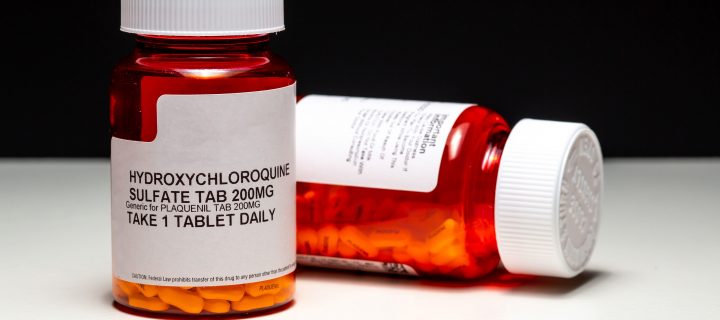It is used to treat many illnesses, and could have bad side effects in severe coronavirus patients.
Hydroxychloroquine is all over the news and difficult to pronounce. Those two things we know for sure. Beyond that, whether using this controversial drug to treat the coronavirus can be a good thing or a bad thing, can be difficult to pinpoint. Some people, including President Trump, are touting it as an effective way to treat COVID-19. There are arguments to be had on both sides of the issue, however. Here are five things to know about hydroxychloroquine.
Related: Why Generic Drugs Can Be Hard to Get During the Pandemic
It is Derived From Quinine
Hydroxychloroquine has been in use for a while. It also goes by the brand name Plaquenil, and according to MMV.org, it is derived from quinine, a chemical compound that comes from the bark of the South American cinchona tree. Synthetic chloroquine was invented in 1934 by scientists in Germany. It is an anti-malarial and hydroxychloroquine is a less toxic version of chloroquine.
Hydroxychloroquine is Used to Treat a Bunch of Illnesses
In addition to treating malaria, this drug is also used to treat rheumatoid arthritis and childhood arthritis. It also treats lupus and primary Sjögren’s syndrome. In general, it is somewhat effective at treating the symptoms of autoimmune disorders, and is sometimes the only known therapy for these diseases. This can be the case for lupus patients as well as those fighting Sjögren’s syndrome. Hydroxychloroquine can prevent organ failure in patients battling these diseases.
Related: Rapid COVID-19 At-Home Testing: How it Works
Prescribing It Now Can Endanger Others
Because hydroxychloroquine is already known to be the only known treatment for some other diseases, prescribing it as an experimental therapy for the coronavirus could put people who do not have COVID-19 in danger. People battling COVID-19 for their life deserve to be protected. So do those fighting lupus and other autoimmune diseases that hydroxychloroquine already treats, however. As Kayla Behbahani states writing for the Washington Post, “prescribing it as a “maybe” endangers the nation’s supply” in the US. This can put the health, and sometimes the lives, of additional patients in jeopardy.
It Works in Lab Tests
In 2005, it was found that chloroquine was effective in preventing the spread of SARS CoV in cell culture. This means the drug worked well in lab tests. Whether it will work well in humans has yet to be seen. Extensive clinical trials are needed to determine conclusively if this is the case.
Related: Is it Possible to Catch COVID-19 Again?
It May Have Dangerous Side Effects for Coronavirus Patients
Yes, it could very well be that hydroxychloroquine is the gift we need to stem the tide of the coronavirus pandemic. It might also be a drug that is dangerous for people who are fighting severe cases of the coronavirus to take. New evidence shows the drug can cause heart arrhythmia in people who have COVID-19. In light of this, the World Health Organization (WHO) recently suspended its global trial involving the drug.
Hydroxychloroquine and its effects on the coronavirus are still being tested by other organizations and governments to see if its anti-inflammatory and antiviral properties, even if mild, can be of use to slow the pandemic. Hopefully we will have those answers soon.
Photo credits: David Shao/Shutterstock












